Menopause skincare 101: Expert tips to deal with dry, dull and irritated skin
From building resilience to boosting repair, two experts share how to care for your skin before and during menopause.
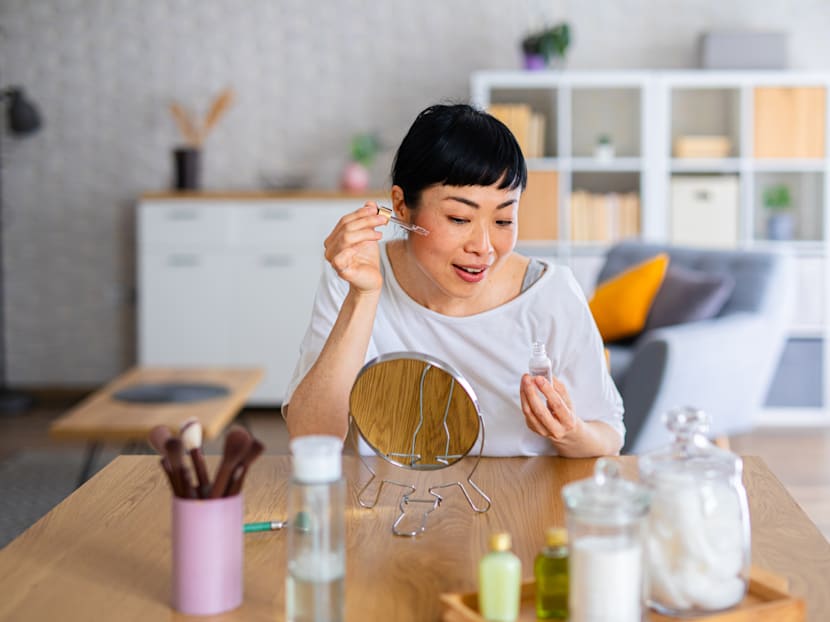
Help your skin thrive through menopause. (Photo: iStock)

This audio is generated by an AI tool.
The moisturiser that once worked like magic suddenly feels inadequate. The sunscreen that never caused problems now stings. Fine lines seem to appear overnight, and your skin looks different in ways you can’t quite pinpoint.
If this sounds familiar, you’re likely experiencing the dermatological side of menopause, a transition that typically occurs between the ages of 45 and 55, though perimenopause can begin much earlier, sometimes in a person’s late 30s or early 40s. As oestrogen and progesterone levels fluctuate and decline, they trigger a cascade of changes throughout the body, including in the very structure and function of your skin.
While conversations around menopause are finally emerging from the shadows, skincare for this stage of life remains frustratingly under-discussed. Many find themselves navigating a confusing landscape of new concerns – persistent dryness, unexpected breakouts, deepening pigmentation, and a loss of firmness – without the roadmap they need.
But here’s what the beauty industry is reluctant to admit: Menopause skincare isn’t about your skin “failing” or needing to be “fixed”. It's about understanding that your skin is simply different now, and with that knowledge comes power.
As two Singapore-based experts reveal to CNA Lifestyle, recognising the science behind these changes and learning to work with them can help your skin not just survive this transition, but truly thrive through it.
THE SCIENCE BEHIND THE SHIFT
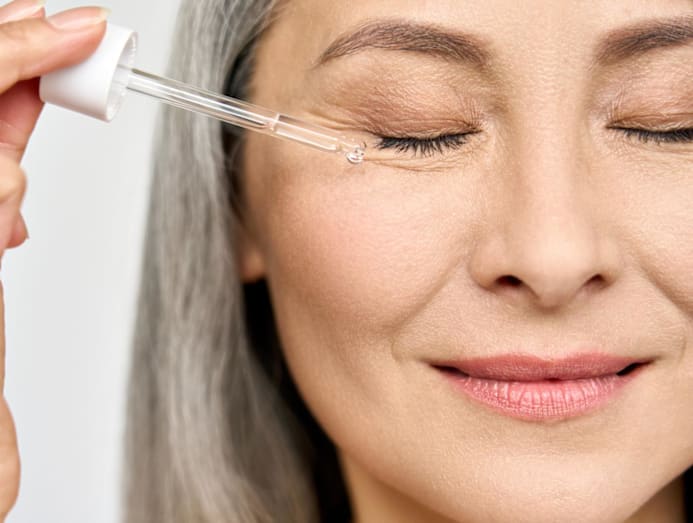
To understand menopausal skin, let us first grasp what’s happening beneath the surface.
“Oestrogen acts on oestrogen receptors in the skin and is responsible for increasing skin thickness, boosting hydration, enhancing wound healing and reducing cellular stress,” explained Dr Evelyn Tay, consultant dermatologist at Lumine Dermatology and Laser Clinic.
“A decline in oestrogen during menopause can lead to dry skin, accelerated collagen and elastin breakdown – 30 per cent of collagen loss happens in the first five years of menopause, leading to more prominent fine lines and wrinkles, sagging of soft tissue and poorer wound healing.”
30 per cent of collagen loss happens in the first five years of menopause.
The numbers are sobering, but they’re not a sentence. Nicolas Travis, founder of Singapore skincare brand Allies of Skin, who has worked with high-profile clients including actresses Uma Thurman and Julianne Moore, and even creating a tailored routine for Harry Styles’ mother, puts it simply: "The skin gets thinner, and it doesn't function as well. It can’t hold onto moisture like it used to, which is why it looks dull and flat."
This explains why your once-reliable skincare routine might suddenly feel inadequate. Your skin isn’t being difficult, it’s just fundamentally different now.
THE MOST COMMON CHANGES (AND WHAT THEY REALLY MEAN)
In her practice, Dr Tay sees consistent patterns. While concerns like dryness, sensitivity, and loss of firmness tend to dominate, some catch even the most skin-savvy women off guard.
“The onset of dry skin often surprises patients, as their usual moisturisers and sheet masks can no longer fully relieve the dryness,” noted Dr Tay. “Sometimes, hormonal shifts during perimenopause can also lead to acne, which surprises patients as this is a symptom they don't expect at this age.”
Beyond these core concerns, Dr Tay also treats patients experiencing hot flush-related rosacea symptoms, accelerated collagen loss leading to facial sagging and deepened lines, and thinning hair or worsening of underlying hair loss conditions.
Accelerated collagen loss leading to facial sagging and deepened lines and thinning hair or worsening of underlying hair loss conditions.
Singapore's climate adds another layer of complexity to these changes. “The most common skin concern would be hyperpigmentation, most commonly melasma. This is due to the overall high UV index in Singapore all year round,” she said.
What makes this especially significant is how our understanding of melasma has evolved. "We now recognise it not just as a pigmentary problem, but as a manifestation of photoageing," she explained. “Part of the problem in melasma is ageing fibroblasts – collagen-producing cells – and sometimes treatments that boost collagen reserve in the skin can help improve melasma.”
POWERFUL INGREDIENTS THAT ACTUALLY WORK
When it comes to addressing menopausal skin, both experts advocate for targeted, science-backed ingredients rather than throwing everything at the wall.
Travis’ go-to arsenal includes copper tripeptide and ectoin for their anti-inflammatory and barrier-strengthening properties, plus an active ingredient called saccharide isomerate, a plant-derived sugar.
“We maxed it out in Allies of Skin’s Copper Tripeptide & Ectoin Advanced Repair Serum as it has been shown to thicken the epidermis of perimenopausal and menopausal people,” he shared.
Dr Tay takes a more foundational approach: “I believe in a simple and effective skincare routine focused on a few actives that are scientifically proven to help the skin. A 10-step routine may add little benefit compared to a four- to five-step routine.”
Her essentials? Broad-spectrum SPF 30+ sunscreen, topical retinol or retinoids for collagen stimulation, Vitamin C for antioxidant protection, and ceramides for barrier fortification. “Other ingredients like peptides signal barrier repair and reduce inflammation in the skin,” she added.
Travis also recommends face oils – something that might seem counterintuitive in Singapore's humidity. “Using a face oil every night mixed into your nighttime moisturiser will make a huge difference as it helps seal moisture in. Look for rosehip oil, black cumin oil, or pomegranate oil – they're inexpensive and transformative.”
NAVIGATING THE SENSITIVITY MINEFIELD
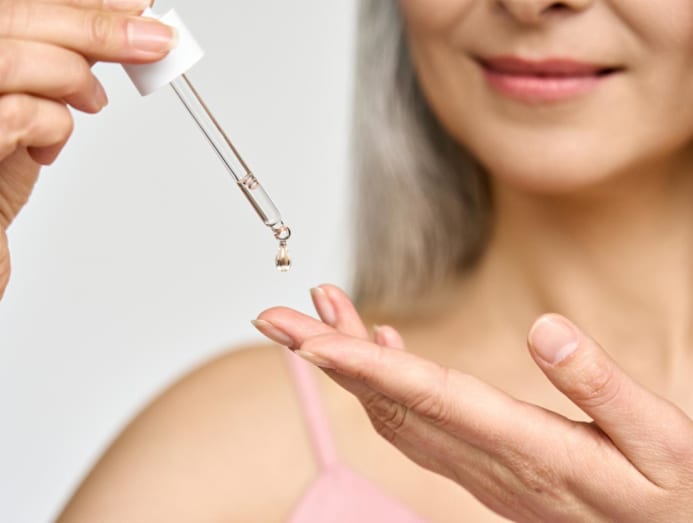
One of the trickiest aspects of menopausal skincare is that the skin becomes more reactive just when you need more active ingredients. The solution isn't to abandon actives entirely, but to use them more strategically.
“The skin is thinner during menopause and can be more sensitive,” Travis noted. “I would exfoliate one to two times a week maximum, and focus on nourishing and brightening the skin with non-exfoliating acids like tranexamic acid – an ingredient that helps discolouration and light scars, Vitamin C, and alpha arbutin – a skin-lightening agent.”
Dr Tay advocates for the "sandwich technique" when introducing retinoids. “Apply retinoids between two layers of moisturiser to help mitigate the risk of irritation.” For those with sensitive skin, she suggests starting with milder retinols rather than prescription retinoids.
The key is patience. "Retinoids need to be introduced slowly with a gradual increase in application frequency as tolerated," she advised.
LESS CAN BE MORE
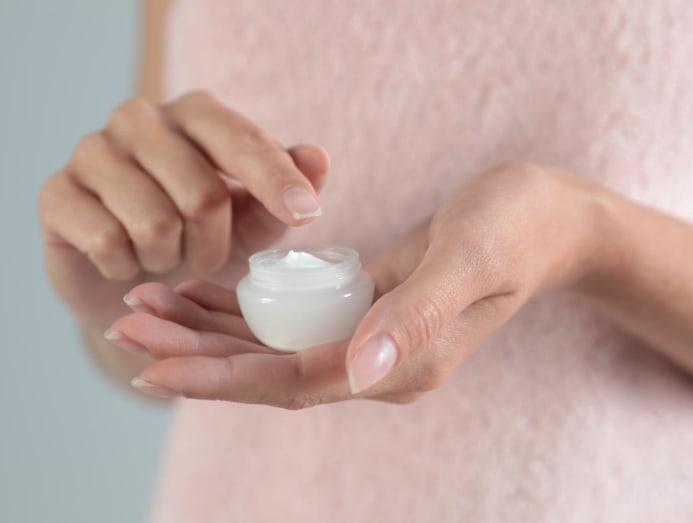
For those wondering whether to simplify or amp up their routines, both experts lean toward strategic simplification.
“It's not always about using more, but rather, using the correct products and actives,” said Travis. “Focus on the needs of your skin at that stage – I would start with products that help hydrate, brighten, firm and plump.”
It's not always about using more, but rather, using the correct products and actives.
For budget-conscious beginners, the experts agree on the non-negotiables: A gentle cleanser, a quality serum with active ingredients, a nourishing moisturiser, and most critically, sunscreen.
Dr Tay adds: “The best ‘insurance’ for one's skin is rigorous sun protection that starts from the early years. In addition to sunscreen, I apply Vitamin C serum in the morning and cycle peptides with retinoids at night.”
CONSIDER PROFESSIONAL TREATMENTS
When topical skincare isn’t enough, Dr Tay sees tremendous value in professional treatments, particularly those that work with the skin’s changing structure rather than against it.
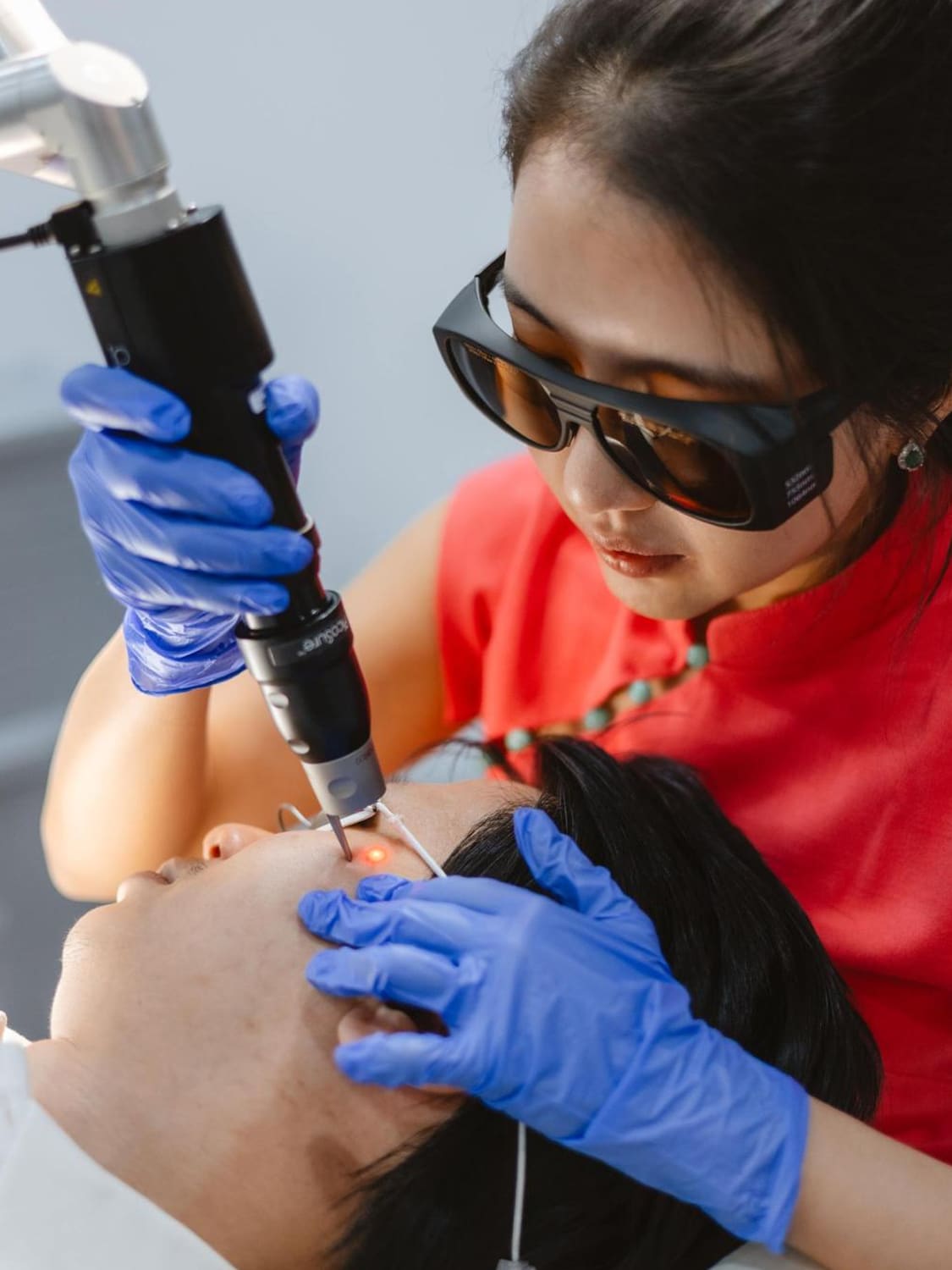
Her favourite approaches include radiofrequency microneedling for firmness and rejuvenation, HIFU for skin tightening, and bio-remodelling treatments like Profhilo that boost hydration while stimulating collagen production.
“Polynucleotide treatments reduce inflammation and boost repair on the cellular level,” she explained. “Collagen-boosting injections can tighten overlying skin while increasing firmness and elasticity.”
For those dealing with multiple concerns, Dr Tay recommends prioritising barrier repair. “With a compromised skin barrier, it won’t be possible to stimulate collagen production or manage hyperpigmentation effectively,” she said.
PREPARING FOR THE JOURNEY AHEAD
If you’re in your late 30s and early 40s, and want healthy skin in your 50s and beyond, preparation is everything.
“Those who experience symptoms they suspect could be perimenopausal could get a hormone profile done to better prepare for changes in their skin,” suggested Dr Tay.
But the most important preparation is lifestyle-based. Dr Tay recommends ensuring a balanced diet rich in proteins, Vitamin C, Vitamin E and omega-3 fatty acids. “This ensures the building blocks for collagen synthesis and can reduce oxidative stress in the skin.”
She adds that menopause should not be seen as “a problem to fix” and it’s important to also address the psychological aspects of these symptoms. “Physical changes during menopause can translate to a loss of identity. The focus should be on healthy skin as a reflection of one's inner wellbeing.”
As a dermatologist in her late 30s managing her own clinic and three children, Dr Tay practises what she preaches: "I'm mindful of not just eating cleanly and building an exercise routine, but also carving out 'me time' to recalibrate, be mindful, and be grateful. Mental health has a significant impact on our skin – the skin-brain axis does exist.”
Travis, who has witnessed this transition in countless clients, offers a refreshing perspective: “Women in their 40s just want to feel great about themselves. The physical toll that menopause has on their body and skin isn’t fun, but finding products that give you joy and visible results can help. That’s when I believe skincare becomes not just about looking good, but about honouring this incredible phase of life.”






